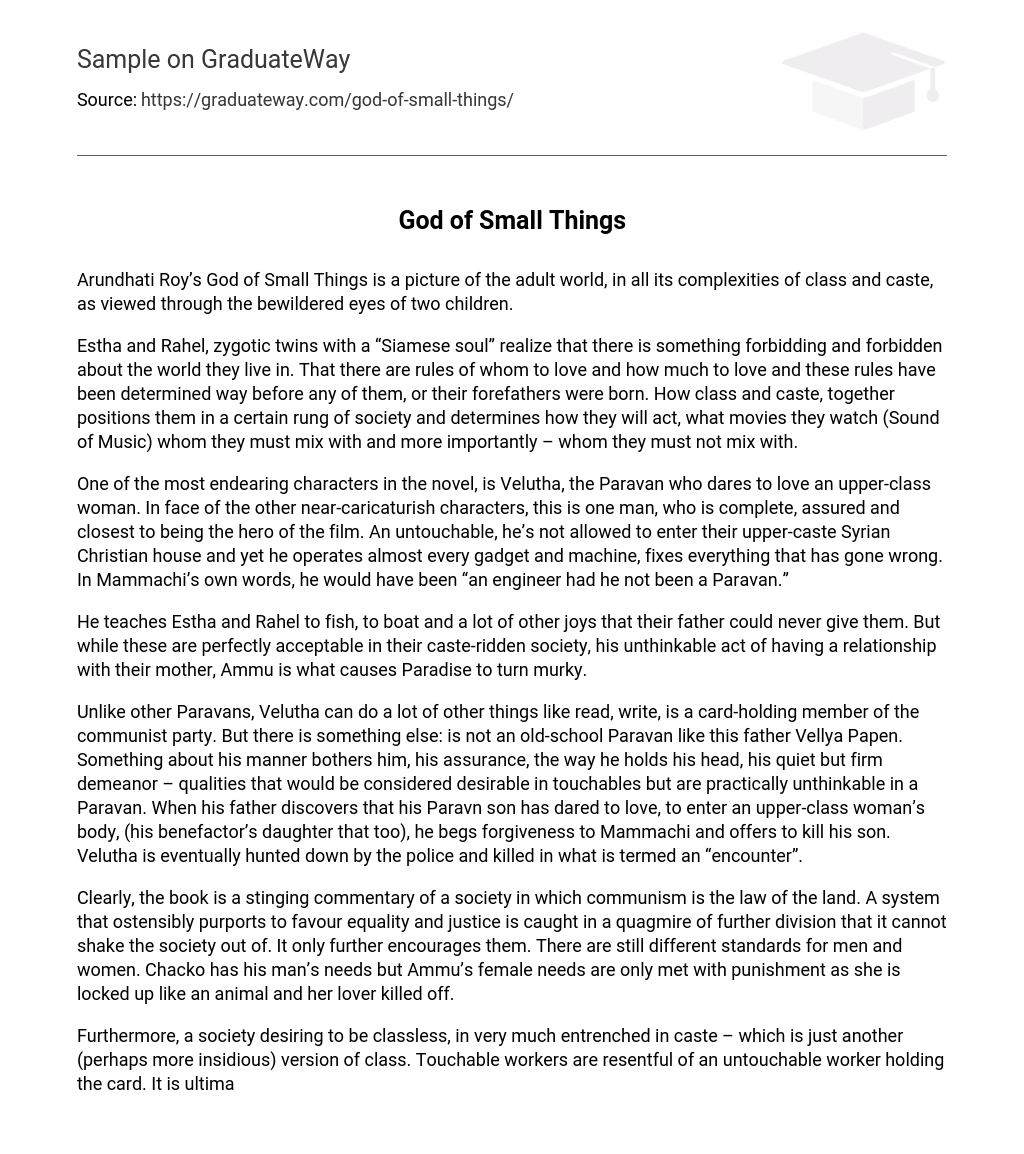Arundhati Roy’s God of Small Things is a picture of the adult world, in all its complexities of class and caste, as viewed through the bewildered eyes of two children.
Estha and Rahel, zygotic twins with a “Siamese soul” realize that there is something forbidding and forbidden about the world they live in. That there are rules of whom to love and how much to love and these rules have been determined way before any of them, or their forefathers were born. How class and caste, together positions them in a certain rung of society and determines how they will act, what movies they watch (Sound of Music) whom they must mix with and more importantly – whom they must not mix with.
One of the most endearing characters in the novel, is Velutha, the Paravan who dares to love an upper-class woman. In face of the other near-caricaturish characters, this is one man, who is complete, assured and closest to being the hero of the film. An untouchable, he’s not allowed to enter their upper-caste Syrian Christian house and yet he operates almost every gadget and machine, fixes everything that has gone wrong. In Mammachi’s own words, he would have been “an engineer had he not been a Paravan.”
He teaches Estha and Rahel to fish, to boat and a lot of other joys that their father could never give them. But while these are perfectly acceptable in their caste-ridden society, his unthinkable act of having a relationship with their mother, Ammu is what causes Paradise to turn murky.
Unlike other Paravans, Velutha can do a lot of other things like read, write, is a card-holding member of the communist party. But there is something else: is not an old-school Paravan like this father Vellya Papen. Something about his manner bothers him, his assurance, the way he holds his head, his quiet but firm demeanor – qualities that would be considered desirable in touchables but are practically unthinkable in a Paravan. When his father discovers that his Paravn son has dared to love, to enter an upper-class woman’s body, (his benefactor’s daughter that too), he begs forgiveness to Mammachi and offers to kill his son. Velutha is eventually hunted down by the police and killed in what is termed an “encounter”.
Clearly, the book is a stinging commentary of a society in which communism is the law of the land. A system that ostensibly purports to favour equality and justice is caught in a quagmire of further division that it cannot shake the society out of. It only further encourages them. There are still different standards for men and women. Chacko has his man’s needs but Ammu’s female needs are only met with punishment as she is locked up like an animal and her lover killed off.
Furthermore, a society desiring to be classless, in very much entrenched in caste – which is just another (perhaps more insidious) version of class. Touchable workers are resentful of an untouchable worker holding the card. It is ultimately an almost comic, and yet real portrayal of the societal problems that dog society.





